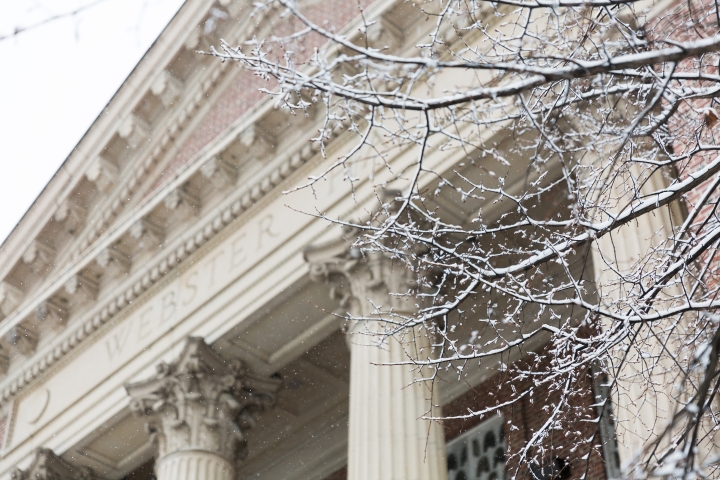A second student living in off-campus housing has tested presumptive positive for COVID-19, said the co-chairs of Dartmouth’s COVID-19 Task Force in an email to the community today.
The student, an undergraduate, is one of three students Dartmouth on Monday said had been tested for the coronavirus. Another of the three, a graduate student, tested positive and the third student, also a graduate student, tested negative.
Dartmouth has been in touch with the two students who have tested positive and are self-isolating off campus to be sure they are comfortable and have what they need while they recover, wrote task force co-chairs Lisa Adams, a physician and an associate professor of medicine at the Geisel School of Medicine, and Josh Keniston, vice president for institutional projects.
Students who have had close contact with the undergraduate are self-quarantining off-campus. The New Hampshire Department of Health and Human Services is investigating to determine whether anyone who has had close contact with the student also needs to quarantine.
In addition to the three who had been tested in the area, Adams and Keniston said that Dartmouth is receiving reports of undergraduates in other states who have tested positive for the coronavirus.
Adams and Keniston urged all members of the Dartmouth community not to return to Hanover if they are living off campus, to practice social distancing, avoid parties and social gatherings, and cancel nonessential travel.
“It is critical that we all work together to flatten the curve of this pandemic, slowing the transmission of the virus so that the number of people who require medical attention does not overwhelm hospitals. You can prevent the spread of COVID-19 by avoiding other people and continuing to practice good hygiene,” they wrote.
They said that all faculty, staff, and students who are still traveling internationally or domestically should return home immediately or risk being unable to return home for an unknown period of time. Those with travel questions or concerns should consult Dartmouth’s travel support resources.
“It is very difficult to isolate ourselves from the people we care about and to restrict our everyday movements and interactions with the world, but by taking these temporary precautions we are protecting the lives of our families, neighbors, and friends. We can rise to this challenge together,” wrote Adams and Keniston.
For the latest information on Dartmouth’s response to the pandemic, visit the COVID-19 website
Susan J. Boutwell can be reached at susan.j.boutwell@dartmouth.edu
